Address
304 North Cardinal
St. Dorchester Center, MA 02124
Work Hours
Monday to Friday: 7AM - 7PM
Weekend: 10AM - 5PM
Address
304 North Cardinal
St. Dorchester Center, MA 02124
Work Hours
Monday to Friday: 7AM - 7PM
Weekend: 10AM - 5PM
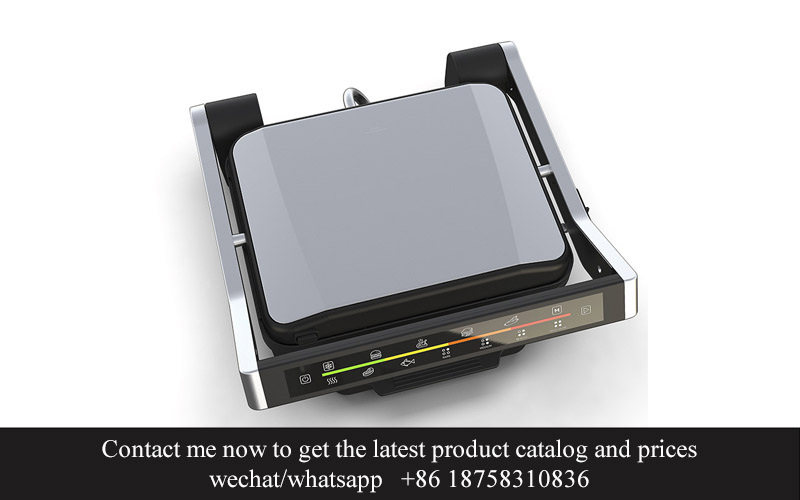
In an ever-evolving global market, the journey of bringing your products to new shores is fraught with complexities, especially when it comes to navigating the stringent regulations of foreign countries. For kitchen appliance manufacturers looking to expand into the EU, understanding and obtaining the correct certifications is a critical step. Enter the UKCA certification, a pivotal player in this market, and turnkey solutions that can make this process smoother than ever. This conclusion delves into why turnkey UKCA certification is the clear path to EU market entry.
In today’s global marketplace, the industry is experiencing rapid growth, with a significant portion of this market being in the European Union (EU). However, navigating the complexities of European regulations can be daunting, especially for manufacturers looking to expand their reach. This is where turnkey UKCA certification comes into play, offering a game-changing solution for EU market entry.
The EU has stringent safety and compliance standards that must be met by all products entering the market. The UKCA (United Kingdom Conformity Assessment) mark is the latest iteration of the UK’s conformity assessment system, replacing the CE marking for products being exported to the EU after the UK’s departure from the bloc. This new certification is not just a formality; it’s a critical step that ensures your products meet the necessary safety and environmental requirements.
For manufacturers, the process of obtaining UKCA certification can be time-consuming and complex. It involves understanding the various directives and regulations that apply to different types of kitchen appliances, conducting rigorous testing, and compiling comprehensive documentation. This is where turnkey solutions step in, offering a streamlined approach that simplifies the certification process.
One of the key benefits of turnkey UKCA certification is the expertise it brings to the table. These solutions are typically provided by specialized firms that have a deep understanding of the EU’s regulatory landscape. They can guide you through the maze of certifications, ensuring that every aspect of your product meets the necessary standards.
Moreover, turnkey solutions save time and resources. Instead of dedicating valuable company hours to understanding and navigating the certification process, manufacturers can focus on what they do best—developing innovative and high-quality kitchen appliances. This efficiency is particularly valuable in a competitive market where time-to-market is a critical factor.
Another significant advantage of turnkey UKCA certification is the assurance it provides. With the right partner, manufacturers can rest easy knowing that their products have been thoroughly evaluated and certified to meet EU standards. This peace of mind is invaluable, as it can prevent costly delays and potential market rejection.
In the EU market, consumer trust is paramount. When a product carries the UKCA mark, it signals to consumers that it has been rigorously tested and complies with the highest safety standards. This can significantly boost the brand’s credibility and appeal, giving it a competitive edge over non-certified products.
Furthermore, turnkey UKCA certification can also open doors to new business opportunities. As the EU continues to prioritize the import of safe and sustainable products, having the UKCA mark can make your more attractive to retailers and distributors who are looking to meet these expectations.
The certification process itself is not without its challenges. It requires detailed knowledge of the technical specifications of your products, as well as a thorough understanding of the relevant EU regulations. This is where the value of turnkey solutions truly shines. These experts can help you interpret and comply with these regulations, ensuring that your product not only meets the requirements but also stands out in the market.
Moreover, turnkey solutions often include ongoing support and updates. As regulations evolve and new directives are introduced, having a partner who stays ahead of these changes is crucial. This ensures that your product remains compliant without the need for constant oversight from your end.
In a world where the demand for energy-efficient and sustainable kitchen appliances is on the rise, turnkey UKCA certification can also help manufacturers position their products as environmentally friendly. This is a significant selling point in the EU, where consumers are increasingly conscious of their ecological footprint.
In conclusion, the need for turnkey UKCA certification is clear for any manufacturer looking to enter the EU market. It offers a comprehensive, efficient, and expert-led approach to ensuring compliance with the EU’s rigorous safety and environmental standards. By choosing a turnkey solution, manufacturers can gain a competitive advantage, build consumer trust, and open up a world of opportunities in one of the largest and most demanding markets in the world.

UKCA certification stands as a pivotal milestone for companies looking to expand their market reach into the European Union. This certification is not just a regulatory compliance but a testament to quality and safety. Here’s a closer look at what UKCA certification entails and why it’s such a significant factor in the EU market.
At its core, UKCA stands for United Kingdom Conformity Assessed, and it’s the new mark that products must carry to demonstrate compliance with UK regulations after the Brexit transition period. This certification is a direct response to the UK’s decision to leave the European Union, ensuring that products intended for sale in the UK and the EU adhere to the necessary standards.
The UKCA mark is a clear indicator to consumers that the product has been thoroughly assessed and meets the required safety and performance criteria. This is particularly important in the kitchen appliance industry, where safety is paramount and consumer trust is crucial.
Understanding the components of UKCA certification is essential. It covers a wide range of products, from electrical goods to mechanical devices, ensuring that they meet the necessary safety and environmental protection standards. This includes everything from ovens and refrigerators to dishwashers and cooktops, which are all subject to rigorous testing.
One of the key aspects of UKCA certification is the assessment of product compliance with UK and EU regulations. This means that even though the UK has left the EU, the UKCA mark ensures that products are still in line with the high standards set by both jurisdictions. For manufacturers, this dual compliance is a significant advantage, as it opens up access to both markets without the need for separate certifications.
The process of obtaining UKCA certification is thorough and comprehensive. It involves several steps, starting with the identification of relevant regulations and standards. This is followed by the actual assessment, which can be self-declaration or accompanied by a third-party certification body. The assessment process is designed to be flexible, catering to both small businesses and large corporations.
Why does UKCA certification matter so much? For starters, it’s a legal requirement. Without the UKCA mark, products cannot be legally sold in the UK or the EU. But it’s more than just a legal matter; it’s about trust and quality assurance. Consumers are increasingly aware of the importance of safety and environmental responsibility, and the UKCA mark is a way for manufacturers to signal that their products meet these expectations.
Moreover, UKCA certification can be a competitive edge. In a market where safety and quality are top priorities, having the UKCA mark can differentiate a product from its competitors. It’s a signal to consumers that the product has been vetted and meets stringent safety standards.
For businesses, the transition to UKCA certification can be challenging, especially for those that have been operating under the CE marking regime. The CE mark, which stands for Conformité Européenne, was the previous mark used to demonstrate compliance with EU regulations. With the UKCA mark now in place, companies must adapt their procedures, ensure their products meet the new standards, and obtain the necessary certification.
The implications of UKCA certification extend beyond the product itself. It affects the supply chain, requiring manufacturers to reassess their suppliers and ensure they also adhere to UKCA standards. This can lead to changes in production processes, quality control measures, and even packaging, all of which must align with the new certification requirements.
Another important aspect of UKCA certification is the potential for harmonization with EU regulations. While the UK has left the EU, there is still an ongoing dialogue about the potential for mutual recognition of standards. This means that products certified with UKCA could potentially also be recognized in the EU, making the certification process more efficient for businesses that operate in both markets.
In conclusion, UKCA certification is not just a regulatory compliance; it’s a symbol of quality and safety. It’s a critical step for businesses looking to enter or maintain their presence in the EU market. By ensuring that products meet the necessary standards, UKCA certification helps build consumer confidence, provides a competitive advantage, and simplifies the process of compliance for companies operating across borders.

The European Union’s market regulations have been a cornerstone of its economic integration and single market strategy, aiming to create a seamless environment for trade and consumer protection. Over the years, these regulations have evolved, reflecting the changing landscape of global trade and technological advancements. The UKCA (United Kingdom Conformity Assessment) certification is a testament to this evolution, playing a pivotal role in ensuring that products comply with EU standards post-Brexit.
As the EU has grown, so too has its regulatory framework, which now encompasses a wide range of sectors, from consumer goods to industrial products. The European Union’s New Legislative Framework (NLF) was introduced to streamline the process of conformity assessment and ensure that all products entering the EU market meet the necessary safety and quality requirements. This framework is underpinned by several directives and regulations that are continuously updated to reflect new scientific evidence and consumer demands.
The NLF introduced the concept of “CE marking,” which stands for “Conformité Européenne” or “European Conformity.” This marking indicates that a product meets all the essential health, safety, and environmental protection requirements set out in EU legislation. For manufacturers and importers, obtaining the CE mark was a crucial step to ensure market access across the 27 member states.
However, with the UK’s departure from the EU in 2020, the landscape shifted once again. The UKCA certification emerged as a new mark of conformity for products destined for the UK market, replacing the CE mark. While the UK left the EU, it maintained many of the same standards, but the UKCA was created to distinguish products that are compliant with UK regulations from those that are simply CE marked.
The UKCA certification is similar to the CE mark in many respects, as it still requires compliance with the Essential Requirements of relevant EU legislation. However, there are some key differences. For instance, UKCA marking is not just a declaration of conformity; it also involves product testing and assessment by a Notified Body, which is a UK-approved organization.
The role of UKCA in the post-Brexit era is multifaceted. Firstly, it serves as a bridge between the UK and the EU, ensuring that products that meet UKCA standards can also be sold in the EU, albeit with additional labeling requirements. This is particularly important for manufacturers who operate across both markets.
Secondly, UKCA certification helps to maintain the integrity of the UK’s regulatory framework. By requiring third-party certification, it ensures that products entering the UK market are safe and meet the necessary standards, thus protecting consumers and businesses alike.
Thirdly, the introduction of UKCA has prompted manufacturers to reassess their compliance strategies. With the UK and EU having different regulatory requirements, companies must now navigate two separate certification processes, which can be complex and resource-intensive. This has led to a greater emphasis on quality management systems and a need for companies to be more vigilant about maintaining compliance with both sets of regulations.
Moreover, the evolution of EU market regulations has not been static. The EU has continued to update its directives and regulations, with a focus on sustainability, digitalization, and consumer rights. For example, the General Product Safety Directive (GPSD) was updated to strengthen the safety of consumer products, while the Eco-design Directive encourages the design of products that are more energy-efficient and environmentally friendly.
The UKCA certification is a direct response to these evolving regulations. It reflects the UK’s commitment to maintaining high safety and quality standards, even as it has taken steps to establish its own regulatory autonomy. This means that while the UKCA is distinct from the CE mark, it still aligns with the fundamental principles of EU legislation.
In conclusion, the evolution of EU market regulations and the introduction of UKCA certification are part of a broader trend towards more stringent and adaptable product standards. As the UK navigates its new relationship with the EU, UKCA plays a crucial role in ensuring that products continue to meet the necessary requirements for market access. It is a symbol of the UK’s commitment to consumer safety and product quality, as well as its willingness to adapt to the changing demands of global trade.
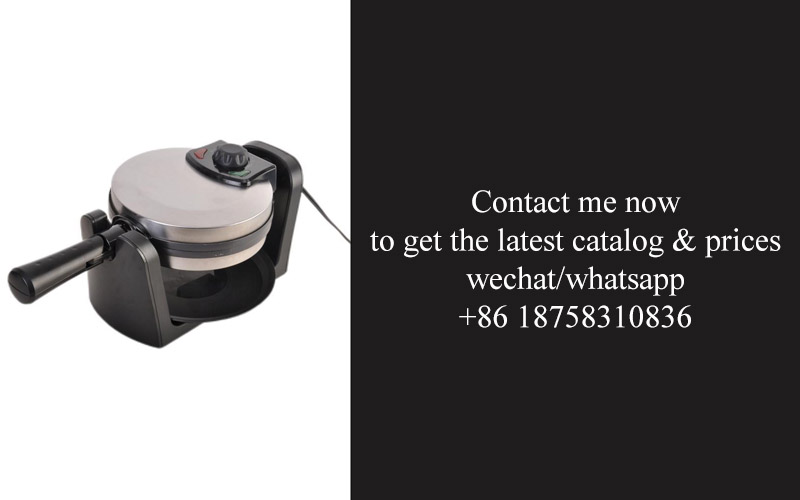
Navigating the complex world of certifications can be daunting, especially when it comes to entering new markets. In the case of the European Union (EU) market, the UKCA (United Kingdom Conformity Assessed) mark has become a pivotal component. Turnkey solutions have emerged as a crucial tool for manufacturers seeking a seamless certification process. Here’s why these comprehensive services are so vital.
Turnkey solutions offer a complete package that includes all the necessary steps to obtain the UKCA certification. This means that from initial assessment to final approval, everything is handled by a single provider. For many companies, this holistic approach is a godsend, as it simplifies what can otherwise be an intricate and time-consuming process.
The UKCA mark is a direct response to the changes in the regulatory landscape post-Brexit. It ensures that products that are sold in the UK and Northern Ireland meet the necessary safety and performance standards. For EU market entry, the UKCA certification serves as a bridge between the two markets, maintaining the integrity of product safety standards while adapting to the new regulatory framework.
One of the primary advantages of turnkey solutions is the expertise they bring to the table. These providers are well-versed in both the technical requirements and the administrative nuances of UKCA certification. They understand the intricacies of different product categories and can tailor the certification process to fit each specific case. This level of specialized knowledge is invaluable, as it can significantly reduce the risk of errors and delays.
The certification process is not just about meeting the standards but also about demonstrating compliance. Turnkey solutions take this demonstration seriously, ensuring that all documentation is in order and that the certification process is transparent. This not only speeds up the approval process but also builds trust with regulatory bodies and consumers alike.
For manufacturers, time is of the essence. Turnkey solutions can drastically cut down the time it takes to obtain certification. Instead of slogging through each step individually, which could take weeks or even months, a turnkey provider can streamline the process. This efficiency is critical, especially for companies that need to bring their products to market quickly.
The cost of certification can be a significant concern for businesses. Turnkey solutions often come with cost benefits. By handling the entire process, they can negotiate better rates with certification bodies and labs, potentially reducing the overall expense. This can be a substantial saving, especially for small and medium-sized enterprises (SMEs) that may not have the budget for an extensive in-house certification team.
Turnkey solutions also provide a level of support that is hard to match when trying to navigate the certification process alone. They offer ongoing assistance, from answering questions to providing guidance on how to meet specific requirements. This support is crucial, as it can prevent costly mistakes and ensure that the certification process runs smoothly.
Moreover, turnkey providers often have a network of contacts within the certification industry. This network can be leveraged to expedite the process, gain insights into the latest trends, and stay ahead of any regulatory changes. This kind of industry intelligence is invaluable for manufacturers looking to maintain a competitive edge in the EU market.
The role of turnkey solutions in the certification process cannot be overstated. They offer a comprehensive, efficient, and cost-effective way to obtain UKCA certification. For manufacturers looking to enter the EU market, these solutions can be the difference between a successful launch and one fraught with challenges. By managing the complexities of certification, turnkey providers allow businesses to focus on what they do best: creating innovative and high-quality products.
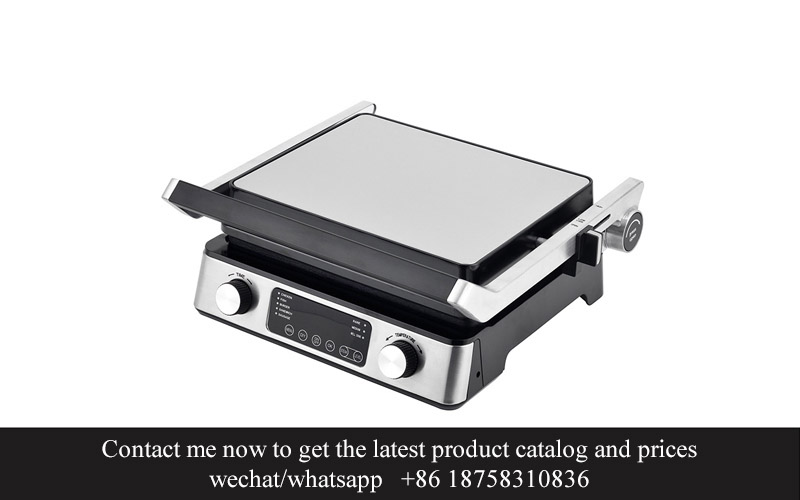
Navigating the EU market for kitchen appliances can be a complex endeavor, with regulations and standards constantly evolving. Turnkey UKCA certification serves as a vital key to unlocking the full potential of your products in this dynamic landscape. Here’s how it can enhance your EU market appeal:
Streamlined Compliance ProcessWhen entering the EU market, compliance with various regulations is non-negotiable. Turnkey UKCA certification offers a comprehensive, all-in-one service that simplifies the compliance process. By handling all aspects of certification, from technical assessments to documentation, turnkey solutions ensure that your kitchen appliances meet the stringent requirements of the EU market without the need for extensive in-house expertise.
Enhanced Trust and CredibilityThe EU has a reputation for rigorous safety and quality standards. By obtaining UKCA certification, you’re not just adhering to these standards; you’re also signaling to consumers that your products have undergone a thorough vetting process. This enhances trust and credibility, making your brand more attractive to European consumers who value safety and quality.
Increased Market AccessThe UKCA mark is the new conformity assessment scheme for products placed on the market in the UK and Northern Ireland. For products destined for the EU market, this certification is crucial as it demonstrates compliance with the EU’s New Legislative Framework (NLF). With a turnkey UKCA certification, you gain access to a wider market, as it’s recognized across the EU, reducing barriers to entry and expanding your potential customer base.
Competitive EdgeIn the competitive kitchen appliance market, having the right certifications can make all the difference. A turnkey UKCA certification process can help your brand stand out by ensuring that your products are not only compliant but also ready to meet the demands of European consumers. This can give you a competitive edge over brands that may not have gone through the same level of certification rigor.
Efficient Time ManagementTime is of the essence in the fast-paced appliance industry. Turnkey solutions for UKCA certification help manage the certification process efficiently, saving you valuable time that could otherwise be spent on navigating complex regulations or dealing with certification bodies individually. This efficiency means your products can hit the market faster, capitalizing on market trends and consumer demands.
Cost-Effective ApproachNavigating the certification process can be costly, especially when you factor in the need for multiple assessments and experts. Turnkey solutions often offer cost-effective packages that cover all the necessary steps, from initial assessments to final certification. This bundling of services can lead to significant savings compared to handling each aspect separately.
Customized Support for Diverse Product LinesKitchen appliances come in a vast array of types and models. A turnkey certification process can provide customized support for your diverse product lines, ensuring that each one meets the specific requirements of the EU market. This level of attention to detail can be challenging to achieve without the assistance of a dedicated turnkey solution provider.
Regulatory Updates and Compliance MaintenanceRegulations in the EU are subject to change, and keeping up with these updates is crucial for maintaining compliance. Turnkey UKCA certification services often include ongoing support and updates, ensuring that your products remain certified even as regulations evolve. This ongoing maintenance is vital for maintaining market appeal and avoiding costly non-compliance issues.
International Expansion StrategyFor brands looking to expand internationally, a turnkey UKCA certification process is an essential part of a broader strategy. It provides a solid foundation for market entry and sets the stage for future expansion into other EU countries or regions. With a turnkey solution, you can enter the market with confidence, knowing that your products are compliant and ready for success.
In essence, turnkey UKCA certification is more than just a regulatory hurdle to clear—it’s a strategic tool that can significantly boost the market appeal of your kitchen appliances in the EU. By simplifying the process, enhancing trust, and providing a competitive edge, turnkey solutions are key to making the most of the European market’s opportunities.
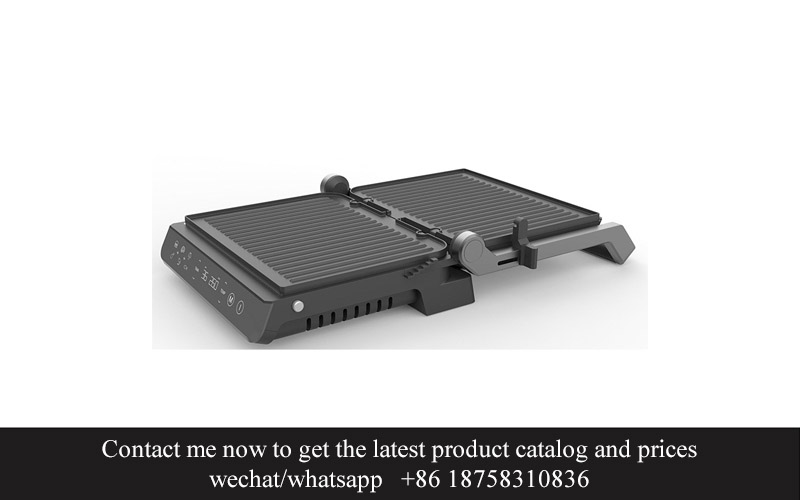
Navigating the complex landscape of European Union (EU) regulations can be daunting for kitchen appliance manufacturers. The introduction of the UKCA (United Kingdom Conformity Assessment) mark is a significant development, offering a streamlined path to market for products from the UK and beyond. Here are several benefits that turnkey UKCA certification can bring to manufacturers looking to enhance their products’ appeal in the EU market.
Efficiency in Certification ProcessThe turnkey approach to UKCA certification simplifies what can be a lengthy and intricate process. By handling all aspects of certification, from technical documentation to compliance testing, turnkey solutions ensure that manufacturers don’t have to navigate the maze of regulations alone. This efficiency means that products can reach the market faster, maintaining a competitive edge.
Cost SavingsCertification can be a costly endeavor, with manufacturers often facing unexpected expenses due to gaps in documentation or non-compliance with standards. Turnkey solutions often include comprehensive packages that can reduce overall costs. By consolidating fees and managing the process end-to-end, manufacturers can avoid the financial pitfalls that come with piecemeal certification efforts.
Compliance AssuranceOne of the primary benefits of turnkey UKCA certification is the assurance of compliance. With the complexities of EU regulations, it’s easy for manufacturers to miss crucial details that could lead to non-compliance. Turnkey providers are well-versed in the nuances of these regulations and can ensure that every aspect of a kitchen appliance is in line with EU standards, reducing the risk of fines or market withdrawal.
Enhanced Brand ReputationCertification marks like the UKCA are a powerful signal to consumers that a product meets certain standards of quality and safety. For kitchen appliance manufacturers, this can significantly enhance brand reputation. A turnkey certification process ensures that the mark is prominently displayed on packaging and marketing materials, reinforcing trust and credibility with customers.
Market AccessThe EU market is vast and highly competitive. Turnkey UKCA certification provides a clear pathway to this market, allowing manufacturers to expand their reach without the legal and logistical hurdles. This access is particularly valuable for companies looking to diversify their customer base or enter new market segments.
Streamlined LogisticsThe logistics of exporting to the EU can be challenging, with varying requirements and customs procedures. Turnkey solutions often include support with export documentation and logistics, making the process smoother for manufacturers. This can lead to faster delivery times and happier customers, as the appliances reach their destinations more efficiently.
Customized SupportEvery kitchen appliance manufacturer has unique needs, and turnkey solutions can be tailored to address these. From small businesses to large corporations, turnkey providers can offer customized support that aligns with the specific requirements of each product line. This level of attention ensures that every detail is taken care of, from regulatory compliance to technical specifications.
Long-Term Strategic PlanningWith turnkey UKCA certification, manufacturers gain a clearer picture of the regulatory landscape in the EU. This insight allows for better long-term strategic planning, including product development and market expansion. By understanding the compliance requirements upfront, manufacturers can design products that are not only compliant but also future-proof.
Expertise and ExperienceTurnkey providers bring a wealth of expertise and experience to the table. They have a deep understanding of EU regulations and can offer insights that manufacturers might not have. This knowledge can be invaluable in avoiding common pitfalls and ensuring that products are ready for the market.
In conclusion, turnkey UKCA certification offers a multitude of benefits for kitchen appliance manufacturers. From efficiency and cost savings to compliance assurance and market access, these solutions can significantly enhance a manufacturer’s ability to compete in the EU market. By partnering with a turnkey provider, manufacturers can focus on what they do best—creating innovative and high-quality kitchen appliances—while leaving the regulatory complexities to the experts.
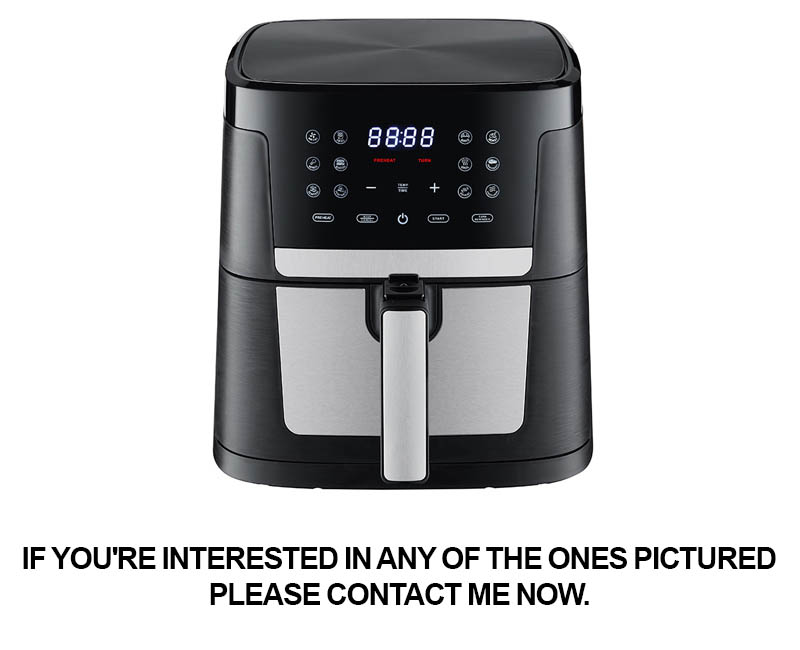
Understanding the complexities of certification processes can be daunting, especially for those new to navigating the regulatory landscape. A turnkey solution can simplify this journey significantly. Here’s what you can expect when opting for a turnkey approach to UKCA certification:
The turnkey process begins with a comprehensive assessment of your product’s compliance with the UKCA (United Kingdom Conformity Assessment) marking requirements. This involves a thorough examination of your product’s technical specifications, design, and manufacturing processes.
Once the assessment is underway, the turnkey provider will guide you through the necessary documentation. This includes gathering evidence of compliance with relevant EU and UK regulations, such as the General Product Safety Directive (GPSD) and the Low Voltage Directive (LVD). The turnkey provider ensures that all documentation is complete and accurate, which is crucial for a smooth certification process.
One of the key advantages of a turnkey solution is the hands-on support you receive throughout the process. The provider acts as an intermediary between you and the certification authorities, ensuring that all communication is clear and effective. This can be particularly beneficial if you’re dealing with multiple stakeholders or if English is not your first language.
The turnkey provider will also handle the practical aspects of certification, such as organizing factory inspections and conducting tests. This can include safety tests, performance evaluations, and compliance checks. The provider’s expertise ensures that these tests are conducted efficiently and that any non-compliance issues are addressed promptly.
Another critical aspect of the turnkey solution is the ongoing support provided after certification. This includes maintaining compliance with any changes in regulations or standards, as well as assisting with any future audits or updates to your product. The turnkey provider remains a valuable resource even after the certification mark is affixed to your product.
The turnkey process is designed to be as efficient as possible, minimizing the time and resources required for certification. This is particularly important for manufacturers who operate on tight timelines or have limited in-house expertise. The provider’s streamlined approach can help you get your product to market faster, reducing the time-to-launch and potentially increasing your competitive edge.
Cost is often a significant concern for manufacturers considering certification. A turnkey solution can offer cost savings by consolidating various services into a single package. This can include not only certification costs but also the costs associated with design changes, testing, and compliance documentation. The turnkey provider can often negotiate better rates with testing laboratories and certification bodies, passing on these savings to you.
The turnkey process also ensures that your product meets the highest standards of quality and safety. By adhering to the stringent requirements of the UKCA marking, you can confidently assure your customers of the reliability and safety of your kitchen appliances. This can enhance your brand’s reputation and customer trust in the EU market.
In the event that issues arise during the certification process, the turnkey provider is there to offer immediate assistance. Whether it’s a technical challenge or a regulatory change, their expertise ensures that you’re not left to navigate these complexities alone. This peace of mind is invaluable for manufacturers who want to focus on their core competencies.
Finally, a turnkey solution keeps you informed and engaged throughout the certification journey. Regular updates and clear communication ensure that you’re always aware of the progress and any potential obstacles. This level of transparency is essential for maintaining a positive relationship with your certification provider and for ensuring that the process is as seamless as possible.
In conclusion, a turnkey solution for UKCA certification offers a range of benefits that can significantly enhance the appeal of your kitchen appliances in the EU market. From comprehensive support and efficiency to cost savings and peace of mind, this approach is a valuable asset for any manufacturer looking to navigate the regulatory landscape with confidence.

Navigating the complexities of international markets can be a daunting task for any company, especially when it comes to product certification. The UKCA (United Kingdom Conformity Assessment) mark, which has become crucial for accessing the EU market post-Brexit, is no exception. A turnkey solution for UKCA certification can simplify this process significantly, offering several layers of support that help brands navigate the waters smoothly.
One of the key benefits of a turnkey solution is the comprehensive support it provides throughout the certification journey. These solutions typically start with a thorough assessment of the product to ensure it meets all necessary EU standards. This includes evaluating technical specifications, materials used, and compliance with safety regulations.
The first step in the turnkey process often involves a detailed gap analysis. This is where the provider identifies any discrepancies between the product and the EU’s requirements. By doing so, they can offer tailored advice on how to bring the product up to standard. This might mean modifying the design, sourcing different components, or adjusting production methods to meet the necessary criteria.
Once the product is deemed to meet the EU standards, the turnkey provider takes over the technical documentation phase. This is critical as all products entering the EU market must come with comprehensive technical files. These documents detail the product’s design, production process, and compliance with relevant regulations. A turnkey solution ensures these files are not only accurate but also organized and easily accessible for regulatory audits.
The next step is the actual certification process, which can be quite intricate. A turnkey provider will manage the testing phase, working with accredited laboratories to conduct the necessary assessments. This might include electrical safety, material testing, and performance evaluations. The provider’s expertise here is invaluable, as they are familiar with the specific tests required for each product category and can guide the brand through this often complex and time-consuming process.
After successful testing, the turnkey provider will assist with the application for the UKCA mark. This involves filling out extensive forms, submitting all necessary documentation, and managing any interactions with the authorities. Their experience can streamline this process, reducing the time and resources required to obtain certification.
Another crucial aspect of a turnkey solution is the ongoing compliance management. Once the product is on the market, it must continue to meet all EU regulations. A turnkey provider can offer ongoing support to ensure the product remains compliant, providing updates on any changes to regulations and helping the brand navigate any challenges that may arise.
Now, let’s look at some success stories of brands that have benefited from turnkey UKCA certification. One such story is that of “Gourmet Appliances,” a company specializing in high-end kitchen gadgets. When the UK left the EU, the Gourmet Appliances team was overwhelmed by the complexity of the certification process. They turned to a turnkey solution provider, who took them through each step methodically.
The provider started by conducting a thorough review of their product line, identifying areas that needed improvement to meet EU standards. They then guided Gourmet Appliances through the technical documentation phase, ensuring all the required files were in place. The turnkey provider also managed the testing phase, which was completed efficiently and without any hitches.
Once the UKCA mark was secured, the turnkey provider helped Gourmet Appliances with the necessary compliance management. This included regular audits and updates on new regulations. The result was a smooth transition for Gourmet Appliances into the EU market, with their products receiving a warm reception due to the high quality and compliance with EU standards.
Another brand, “SmartCook Kitchen Appliances,” had a similar experience. The company, which produces smart kitchen appliances, faced the challenge of certifying its innovative range for the EU market. They engaged a turnkey solution provider to navigate the UKCA process.
The provider’s expertise was instrumental in guiding SmartCook through the certification journey. From identifying the necessary tests to ensuring the technical files were impeccable, the turnkey solution made the process much more manageable. As a result, SmartCook’s products were not only certified but also received positive feedback for their compliance and design.
These case studies illustrate the tangible benefits of a turnkey UKCA certification process. By removing the complexities and uncertainties that come with certification, brands like Gourmet Appliances and SmartCook were able to focus on what they do best—creating innovative kitchen appliances. The turnkey solution provided them with the peace of mind that their products were compliant and ready for the EU market, without the hassle of managing the certification process alone.
In conclusion, the turnkey approach to UKCA certification is a game-changer for brands looking to enter the EU market. It offers a comprehensive and streamlined process, from initial assessment to ongoing compliance management. With the right turnkey solution provider, brands can rest assured that their products will meet all necessary standards, ensuring a successful market entry and ongoing success in the competitive EU market.

The landscape of kitchen appliance exports to the EU is continually evolving, shaped by regulatory changes, market trends, and technological advancements. As manufacturers look to the future, there are several key developments to keep an eye on that could significantly impact their operations and success.
Consumer Preferences Shift Towards SustainabilityAs the world becomes more environmentally conscious, consumers are increasingly seeking out sustainable and energy-efficient kitchen appliances. Brands that can demonstrate a commitment to sustainability will likely find a growing market within the EU, where eco-friendly products are becoming more popular. Innovations in materials, energy consumption, and waste reduction are areas where manufacturers can differentiate themselves and appeal to the eco-conscious consumer base.
Technological Integration and Smart Home TrendsThe integration of smart technology into kitchen appliances is not just a trend; it’s a necessity. The EU market is embracing the smart home revolution, and kitchen appliances that offer connectivity, remote control, and data analytics are becoming more sought after. Manufacturers need to invest in research and development to ensure their products are compatible with the latest smart home systems, providing a seamless and integrated experience for consumers.
Regulatory Compliance: The UKCA CertificationThe UKCA (United Kingdom Conformity Assessment) mark is a vital certification for products sold in the UK and the EU post-Brexit. Adapting to this new certification requirement is not just about meeting compliance; it’s about ensuring that products meet the highest safety and quality standards. Brands that successfully navigate the UKCA certification process can use it as a competitive edge, assuring customers of their commitment to safety and quality.
Cross-border E-commerce GrowthThe EU’s e-commerce market is expanding rapidly, offering kitchen appliance manufacturers new opportunities for growth. By leveraging online platforms and direct-to-consumer sales, brands can reach a wider audience without the need for a physical presence in each country. This shift towards online sales requires a strong e-commerce strategy, including localized marketing, efficient logistics, and clear customer support.
Cultural Nuances in Marketing and Product DesignThe EU is a diverse market with varying cultural preferences. Understanding and adapting to these nuances is crucial for successful market penetration. For instance, certain features or designs may resonate more with consumers in specific countries. Manufacturers need to tailor their marketing strategies and product offerings to align with local tastes and needs, ensuring that their products resonate with the target audience.
Collaboration with Local Distributors and RetailersBuilding strong relationships with local distributors and retailers is essential for a successful market entry. Local partners can provide valuable insights into market trends, consumer behavior, and distribution channels. Collaborating with established players can help manufacturers gain market share more quickly and efficiently.
The Rise of Health and WellnessHealth and wellness are at the forefront of consumer concerns, and this extends to kitchen appliances. Appliances that promote healthier cooking methods, such as induction cooktops or air fryers, are gaining popularity. Manufacturers that can position their products as tools for healthier living may find a receptive market in the EU.
Global Supply Chain Challenges and SolutionsThe global supply chain remains a challenge, with disruptions due to various factors, including trade tensions and logistics issues. Manufacturers need to be agile and adaptable, exploring alternative sourcing options and supply chain strategies to mitigate risks and ensure product availability.
Innovation in Design and FunctionalityContinual innovation in design and functionality is a must for kitchen appliance manufacturers. By staying ahead of the curve, brands can introduce novel features that address consumer pain points and improve the overall user experience. This could include anything from user-friendly interfaces to advanced cooking technologies.
The EU market for kitchen appliances is dynamic and ever-changing. By focusing on sustainability, technological integration, regulatory compliance, e-commerce strategies, cultural nuances, local partnerships, health and wellness trends, supply chain resilience, and innovation, manufacturers can position themselves for success in the years to come. As the market evolves, those who are able to adapt and anticipate future trends will be well-positioned to thrive.
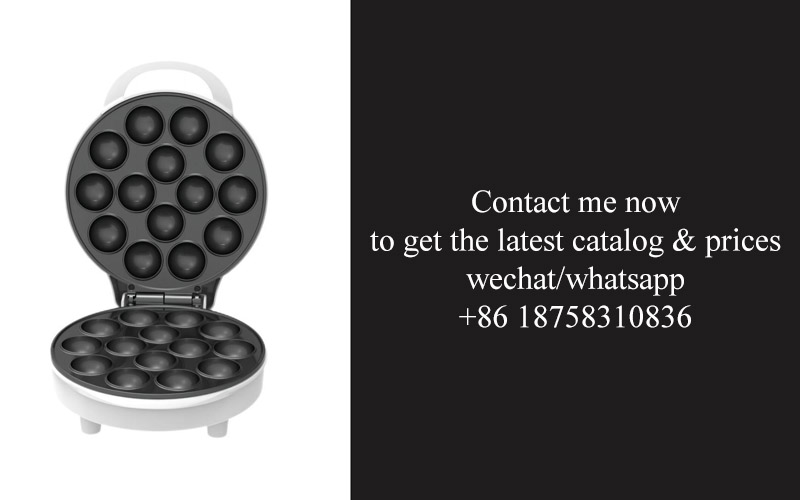
The complexities of navigating the EU market for kitchen appliance manufacturers have never been more pronounced. With the introduction of the UKCA (United Kingdom Conformity Assessed) mark, the landscape has evolved, bringing both challenges and opportunities. Here’s why embracing a turnkey UKCA certification process is a strategic move for brands aiming to thrive in the EU market.
Streamlined Compliance ProcessA turnkey solution for UKCA certification ensures that every aspect of compliance is handled efficiently. This includes understanding the intricate requirements of various EU directives and standards, such as the Low Voltage Directive (LVD) and the Radio Equipment Directive (RED). By having a dedicated team manage these complexities, manufacturers can focus on their core competencies without the burden of compliance intricacies.
Risk Mitigation and Quality AssuranceTurnkey solutions provide a layer of risk mitigation that is crucial in the EU market. With the right partner, brands can expect rigorous quality checks and thorough testing to ensure their products meet or exceed the necessary safety and performance standards. This not only protects the brand’s reputation but also reduces the risk of product recalls or safety incidents.
Cost-Effective ApproachThe turnkey model is designed to be cost-effective. By consolidating all certification services into one package, manufacturers can avoid the costs associated with multiple suppliers and consultants. This unified approach often results in a more competitive pricing structure, allowing brands to allocate resources more efficiently.
Time EfficiencyTime is of the essence in the global market. A turnkey solution accelerates the certification process, ensuring that products are ready for the EU market as quickly as possible. This is particularly important for companies that rely on a timely launch to stay competitive.
Expert Guidance Through Changing RegulationsRegulations in the EU are dynamic, and staying compliant can be daunting. A turnkey provider stays on top of these changes, offering expert guidance to manufacturers. This means that brands can rest assured that their products are not only compliant today but will remain so as regulations evolve.
Enhanced Brand ReputationThe UKCA mark is a symbol of quality and compliance. Brands that successfully navigate the turnkey certification process can leverage this certification to enhance their reputation in the EU market. Consumers are often more likely to trust products that bear recognized safety and quality marks.
Expansion into New MarketsFor manufacturers looking to expand into new EU markets, turnkey UKCA certification is a critical step. It allows brands to enter multiple markets with a single certification, simplifying the process and reducing the administrative burden.
Flexibility and ScalabilityA turnkey solution is not just for initial certification; it can also support ongoing compliance and scalability. As a brand grows, its certification needs may evolve, and a turnkey provider can offer scalable services to meet these changing demands.
Customer Satisfaction and LoyaltyBy ensuring that products meet the stringent safety and quality standards of the EU market, brands can improve customer satisfaction. Satisfied customers are more likely to become loyal advocates for the brand, driving repeat business and fostering a strong customer base.
Support in Post-Certification ActivitiesThe turnkey process doesn’t end with certification. A comprehensive service provider can offer ongoing support, including product labeling, technical documentation, and market-specific advice. This support is invaluable for maintaining compliance and adapting to market trends.
In conclusion, turnkey UKCA certification is not just a compliance exercise; it’s a strategic move that can open doors to new opportunities and strengthen a brand’s position in the EU market. By partnering with a reliable turnkey provider, kitchen appliance manufacturers can navigate the complexities of certification with confidence, ensuring their products are not only compliant but also competitive and reputable.